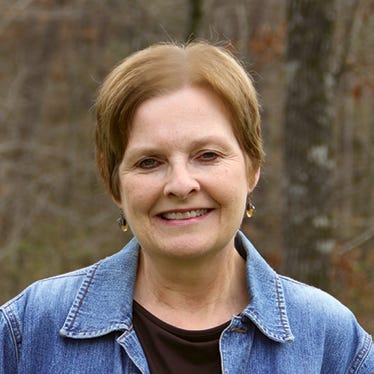November 13, 2019
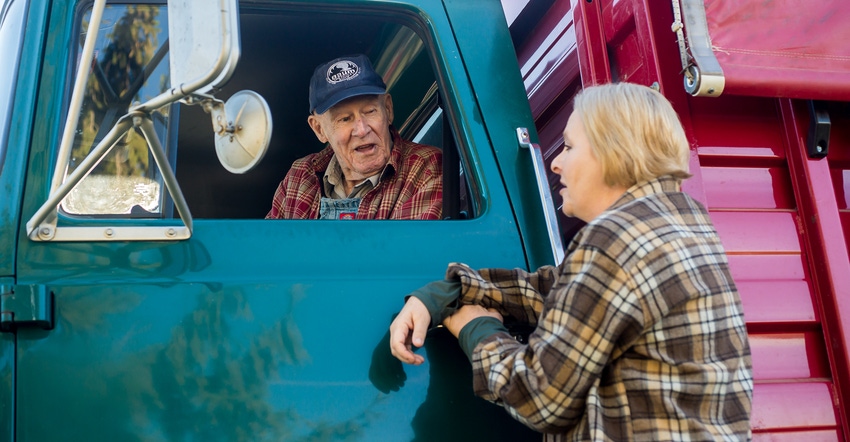
Editor’s note: Cynthia Ryan is a farmer’s daughter from Clinton, Ill., and a professor at the University of Alabama at Birmingham. Following her father’s death and her mother’s relocation to her Alabama home, Ryan finds her heartstrings tied deeply to the farm she’s now managing from afar, just like hundreds of other off-farm farmland heirs. Here’s what she’s learned about farming from 600 miles away.
When Dad, a fourth-generation farmer from DeWitt County, Ill., passed away in January 2018 a week shy of his 82nd birthday, my world crumbled. While dealing with overwhelming grief, I took on overseeing my family’s midsize grain farm from my home in Alabama some 600 miles away. Overnight, I became one of nearly 900,000 absentee landowners across the country, according to USDA. Most days, I have more questions than answers, but my experiences may resonate with farmers who find themselves working with folks like me — or preparing their own children for the path I’m on today.
Sometimes it seems that the passing of the baton happened suddenly. But looking back, I see how Dad spent decades preparing me for the job. Every weekend or holiday visit, I hopped into the pickup with Dad to scout fields and take stock of the season’s crop of corn, soybeans, and occasionally, wheat.
As we cruised down one back road after another, Dad shared the history behind parcels owned by previous generations and spoke of acreage he and Mom had scrimped and saved to buy. He described years when weather cooperated and years when he and his brother didn’t think they’d get the crop in between heavy rains or out before the first frost.
During the final nine months of his life, I returned to Illinois to care for Dad. He’d been diagnosed with advanced congestive heart failure, and his doctors indicated his days as an Illinois farmer were coming to an end. Once doled out a morsel at a time, my farming education was now dispatched in heaps.
Two years after assuming my place in our family’s operation, I recognize how deliberately Dad’s succession plan unfolded. While tending to the daily tasks of maintaining machinery, paying bills, and checking weather forecasts and farm futures, he never lost sight of the inevitable moment when another Ryan would pick up our family farm legacy where he left off.
A case in point: When he retired in 1998, Dad brought on Bob Kuntz and Fritz Robinson, who have been fixtures at our house for more than 20 years — parking planters and wagons out back and debating trade policies and land prices around the kitchen table. They, along with Mark O’Rourke, a farmer who recently joined our operation, are the men I count on these days to guide me through this modified terrain. The land is the same, but I’m now the one accountable for survival of the family business.
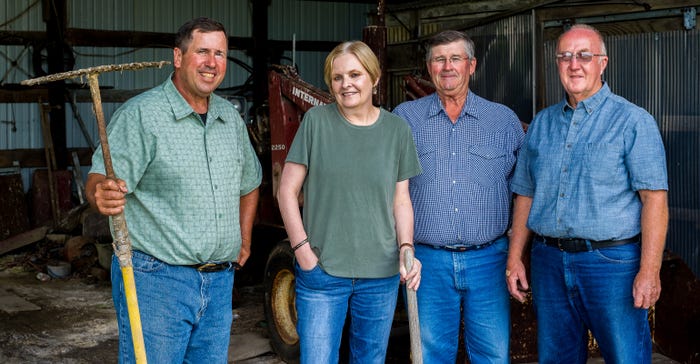
TEAM: Cynthia Ryan says her father taught her to surround herself with good people, like their farmer-tenants. From left are Mark O’Rourke, Ryan, Bob Kuntz and Fritz Robinson.

Fortunately, Dad left behind several valuable lessons that have made this shift manageable:
1. Surround yourself with good people. Bob, Fritz and Mark have my back, and I have theirs.
Dad drew up crop-share leases for Bob and Fritz, the same arrangement I adopted when inviting Mark onboard. We split expenses and bushels straight down the middle for acres farmed by each operator.
When decisions are looming, such as whether to request Conservation Reserve Program assistance for a waterway, we talk through the situation and the application process. I won’t pretend to take the lead in this endeavor. Usually, Bob, Fritz or Mark explains to me why the problem is, indeed, a problem, and how it should be addressed.
I remind myself that we are all stakeholders. While my family owns the land, our farm operators make a living off these acres while investing their knowledge and care.
The highlight of every harvest trip is climbing into the combine to sit beside the farmer who put in hours of hard work to produce a bountiful crop. Dad occupied the same seat from the time he retired until his final harvest in 2017. It’s there that two at a time, we share ideas about farming and whatever else rests on our minds.
2. Think for yourself but seek expert advice. Despite growing up in a small rural community, Dad never fell into the habit of keeping up with his neighbors. He didn’t want me to, either.
I’m learning, gradually, to trust my gut. If something doesn’t feel right, it’s worth exploring at the very least. That might mean consulting with Bob, Fritz or Mark, or reading a column in Prairie Farmer or tuning in to “This Week in Agribusiness” on RFD. I seek advice from those far better informed, but I make up my own mind at the end of the day.
I don’t know a whole lot about farming in the grand scale of things. But I do know other things, like how to isolate a potential problem and research alternative solutions, how to communicate with crop insurance reps and elevator managers, how to keep careful records of items purchased and bills paid, and to be on the lookout for errors. When I’m inundated with too many voices — many reflecting popular trends rather than well-conceived recommendations — I remind myself that I’m in the driver’s seat.
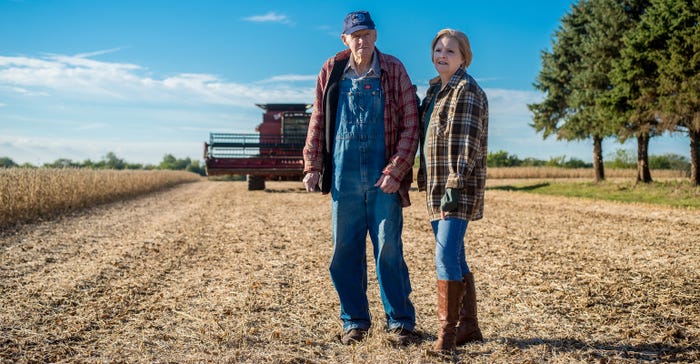
FORWARD: “Sometimes it seems that the passing of the baton happened suddenly. But looking back, I see how Dad spent decades preparing me for the job,” says Cynthia Ryan of her father, Jerry.

3. Don’t bite off more than you can chew. Handling the farm checkbook is a daunting task. I still remember the first time I wrote a $60,000 check for farm expenses. I told Dad I just couldn’t do it, as he patiently explained how I needed to reorient myself to the cost of doing business on a farm.
Dad was a planner and knew where every dollar went. Born in 1936, he was raised by parents who struggled through the Great Depression to keep their 293-acre farm going to feed four growing boys. His mom sold fresh eggs and chickens to cover some household expenses, while his dad made do with aging equipment and horses that had seen better days for pulling the plow. Dad internalized the fear of not having enough money to care for his family or pay the bills.
Don’t get me wrong. Dad took financial risks, but not without careful contemplation. He and Mom bought several hundred acres over the course of 50-plus years, expanding their operation significantly. But Dad never put himself in a position where he might not be able to repay a loan or save for retirement.
Those were his standards for expanding an operation, and I’ve adopted many of them. I also know enough to weigh the willingness of our operators to take on additional acreage should I decide to purchase more land or upscale the business in other ways.
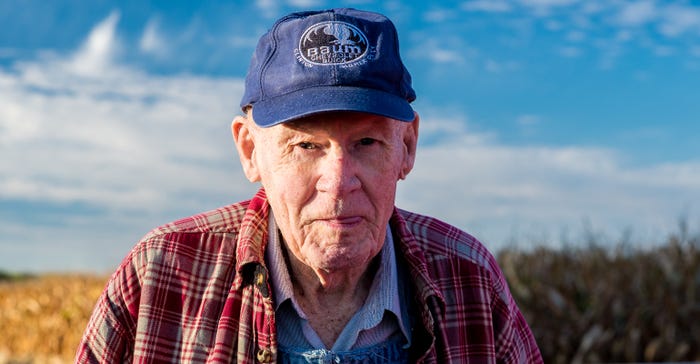
LIFE: “Don’t bite off more than you can chew” was a life lesson Jerry Ryan passed on to his daughter, Cynthia, born of a childhood begun during the Great Depression.

4. Remember each generation does things uniquely. Though Dad did his best to prepare me, the past two years have presented challenges. I’ve gotten many things right and made my share of mistakes.
Some of the hurdles I’ve faced are inevitable for an absentee landowner inhabiting a life away from the farm. In fact, I’ve pondered these words in a variety of settings associated with this other existence — in college classrooms where I teach students to write, in doctors’ offices where I wait alongside my 83-year-old mom who lives with us following a diagnosis of early Alzheimer’s disease, in movie theaters and football stadiums and at kitchen tables where I enjoy spending time with my husband and daughters.
These are the spaces from which I negotiate my newfound responsibilities. And that’s OK for a landowner who’s forging her own path from afar, with help back home.
Ryan’s parents are Jerry and Mary Ann Ryan, Clinton, Ill. For more on their experience, check out her LA Times op ed.
Read more about:
Absentee LandownersAbout the Author(s)
You May Also Like


